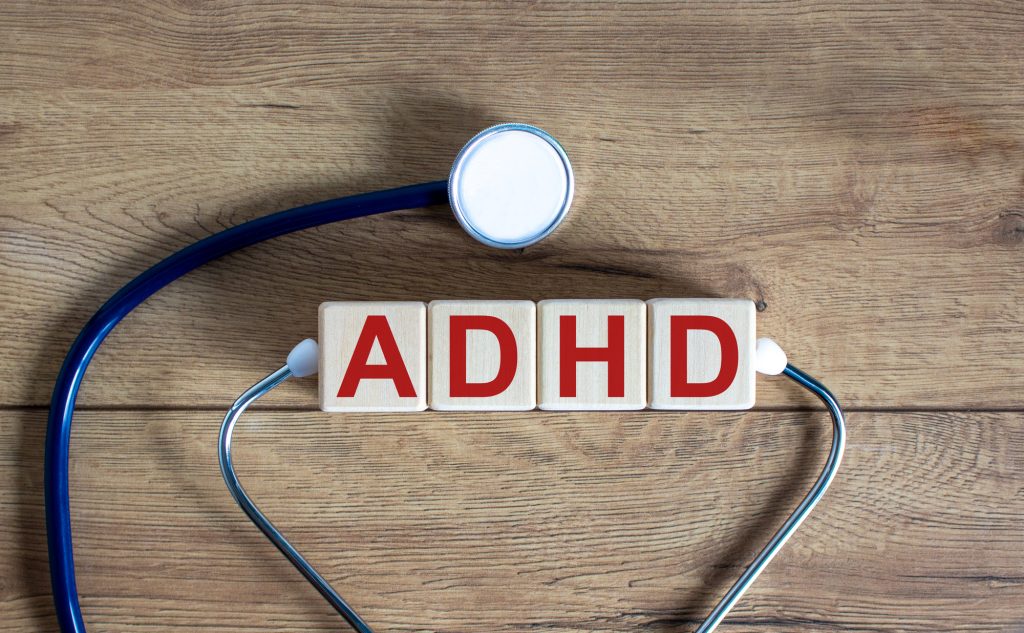 Written by Elissa Capelle Vaughn
Written by Elissa Capelle Vaughn
Assessing a patient’s caffeine intake is a vital part of any health assessment. While a cup of coffee is part of a normal morning routine, it’s still a natural chemical stimulant that impacts a patient’s central nervous system. However, for patients with Attention-Deficit/Hyperactivity Disorder, also known as ADHD, coffee may go beyond the typical morning pick-me-up.
Patients with ADHD who regularly manage symptoms like hyperactivity, impulsive thoughts or actions, and attention issues may use coffee or other caffeinated beverages to manage these core symptoms. While caffeine may assist some patients in managing these symptoms, especially focus, it can also have a paradoxical effect on ADHD itself, including heightened anxiety or irritability, which can worsen attention.
Clinicians and nurses need a proper structure for effectively assessing caffeine use in patients that includes questions and patient counseling on the effects of caffeine, including possible risks for ADHD symptoms.
Here are several points to consider when developing a caffeine use health assessment for patients with ADHD.
Inquiring About Caffeine Sources and Consumption
A complete caffeine use questionnaire for patients with ADHD should start with a thorough discussion on caffeine use itself, primarily, the daily amount consumed, and sources of caffeine. Asking focused questions on caffeine habits will allow medical professionals to better identify areas where more education on ADHD response to caffeine is needed, especially when it comes to potential risks for core symptoms.
For example, a discussion on daily caffeine intake should start by asking a patient about the amount of caffeinated beverages they consume daily. The next questions should target the sources of that caffeine, including coffee, energy drinks, tea, and so forth. Answers should also include any over-the-counter (OTC) supplements that contain caffeine.
The objective of these questions is to establish the patient’s total daily caffeine intake. If a patient is not aware of the adverse effects of too much caffeine on their ADHD symptoms, understanding their daily intake can help them make necessary modifications. Patients who take prescribed medication for their ADHD diagnosis must understand the potential risks of consuming too much caffeine.
Your next question should inquire about the timing of the patient’s caffeine use. Caffeine can remain in a patient’s body for several hours. Since up to 70% of ADHD patients may experience insomnia, according to Frontiers in Psychology, inquiring about the last cup of coffee of the day can prompt further discussion about sleep quality and ADHD. If left unaddressed, patients with ADHD may experience increased fatigue.
Assessing Energy Drink Consumption
Inquiring about caffeine sources is critical since some beverages contain considerably more caffeine than others.
For example, one can of a popular energy drink can contain over 200 milligrams of caffeine, in addition to increased levels of sugars and other stimulants like ginseng or guarana. This question is particularly important for assessing the health of younger patients with ADHD, especially adolescents to young adults in their 20s.
These types of beverages can increase the risk of anxiety and even cardiovascular issues like heart palpitations. Consuming them in large quantities is particularly concerning.
Tiredness and Caffeine Use
It’s not uncommon for a caffeine stimulant to cause tiredness. This reaction is an example of a paradoxical effect.
Tiredness may also be due to sudden fatigue once the caffeine wears off. Caffeine blocks the adenosine receptors that promote sleep, but those levels rise as caffeine levels dip.
The next question should assess how long it takes a patient to fall asleep. These answers can provide more clarity about the effect of caffeine consumption on sleep quality. This would be a good opportunity to educate patients about ADHD comorbidities like sleep disturbances.
Caffeine use can cause blood sugar levels to rise temporarily before leading to a “crash.” This cycle can lead to an increased feeling of fatigue.
Answers to these questions can help medical professionals gain more insight into a patient’s sleep troubles, opening the door to discussions on caffeine moderation for ADHD management.
ADHD patients who consume more caffeine per day may develop a tolerance, causing more symptoms of withdrawal, as well as dehydration, since caffeine is a diuretic. Increased tiredness, headaches, and irritability from withdrawals also contribute to tiredness.
Asking patients specifically about the frequency of withdrawal symptoms, like headaches and irritability, can provide more information on caffeine dependence. Asking a patient whether they’ve tried to cut back on caffeine or quit altogether is also crucial information. These answers help clinicians provide safer and more effective recommendations for caffeine decreases.
Caffeine Use and Anxiety
The next set of questions should focus on the relationship between caffeine and anxiety. Questions should assess for the following symptoms:
- Anxiety
- Restlessness
- Racing heart
- Jitteriness
If patients are experiencing these symptoms after consuming caffeine, over-caffeination may be the cause. Too much caffeine can cause overstimulation, worsening ADHD symptoms. Assessing this information correctly can prevent misdiagnosis of other conditions or the possible prescribing of unneeded medications.
Caffeine and Medication Use
Next, screening protocols should establish if patients are currently taking any prescription medication. Patients diagnosed with ADHD may be prescribed a type of stimulant-based medication for their diagnosis. The next question should ask about any caffeine-related symptoms while taking medication concurrently.
For patients with ADHD, caffeine and medication may increase the risk of paradoxical symptoms like insomnia. Patients may experience an increase in anxiety or elevated heart rates. Determining whether there’s a combined impact can help medical professionals recommend changes to caffeine intake or ADHD medication schedules.
Listening to Patients
Once an assessment is complete, there will be enough information to shift to caffeine use education and collaborative strategies between clinicians and patients. This process starts by asking about the patient’s perspective on caffeine use. Empathy is key. If tapering or quitting caffeine is highly recommended, a patient with ADHD may feel differently if they feel caffeine genuinely helps them manage core symptoms like focus.
This process is all about informing. Clinicians should validate patients’ positive experiences with caffeine. This validation is necessary for building trust, which is a foundation for receptiveness.
It’s a good opportunity to discuss how caffeine works, including how it can temporarily improve focus by increasing alertness. Using visuals can help patients understand how caffeine blocks the adenosine neurotransmitter that promotes better sleep and relaxation; this illustration can give patients more insight into their sleep troubles, which may encourage them to accept advice on healthy caffeine tapering.
Some patients may note a reduction in their ADHD-related hyperactivity (and fidgeting) after consuming caffeine. This calming effect is likely due to a temporary release of dopamine and norepinephrine. Individuals with ADHD may have lower levels of these neurotransmitters. Therefore, they may perceive caffeine use as essential to regulating brain activity.
Memory may also come up in these patient conversations.
For example, a study cited by Johns Hopkins University noted that caffeine could have a positive impact on working memory. Such findings can tie into patients’ feelings of a cognitive boost after caffeine consumption. Clinicians should validate such studies in discussions, should they come up. Referencing studies is another opportunity to illustrate how caffeine blocks certain neurotransmitters to heighten alertness temporarily.
Discussing the Potential Risks of Caffeine for ADHD
After establishing trust with patients, the next stage is to discuss the potential risks of caffeine use. For example, clinicians should take this time to illustrate connections between caffeine-related overstimulation and an increase in anxiety and agitation in patients with ADHD. Patients can better understand how caffeine may be negatively impacting them.
Patients who’ve described an increase in impulsivity can better connect their caffeine use to these increases. Clinicians can describe how caffeine enhances the brain’s natural “reward” system through dopamine increases. This effect can lead to an increase in ADHD-related impulsivity as the brain naturally seeks stimulation and gratification.
If a patient made a note earlier about nervousness, jitters, migraines, and even stomach problems, medical professionals can further elaborate on these issues as side effects of high caffeine intake. Such symptoms can interfere with daily activities.
One of the most critical risks to discuss with patients is the co-use of prescription medication for ADHD, especially if it’s a stimulant, and caffeinated beverages. Clinicians must explain to patients that this combination can trigger symptoms related to over-medication, including:
- Increased heart rate
- Rising blood pressure
- Moderate to severe anxiety
- Sleep disturbances
These symptoms can negatively impact the effectiveness of a prescribed ADHD treatment.
Making Recommendations
After assessing a patient’s caffeine use, listening to their perspectives, and discussing possible risks, the next conversation should focus on recommendations. This should be a collaborative process, focusing on informed decision-making.
One recommendation is to keep a log of caffeine intake, similar to food allergy logs. Patients are encouraged to start fresh, logging their first dose of caffeine or their first cup of coffee of the day. The amount of caffeine should be logged in milligrams. After consuming caffeine, patients should document how they feel.
Being mindful of how caffeine affects the body can encourage patients to decrease their intake naturally and avoid over-caffeination.
Moving Forward
Ultimately, the goal of these ADHD caffeine assessments is to empower patients to make smart choices about their ADHD diagnosis and overall health. Physicians and nurses are in a position to make a profound difference in the lives of patients with ADHD. Developing detailed caffeine use assessments is part of a holistic approach to managing ADHD on all fronts, from clinical interventions to wellness-focused strategies.
Author bio:
Elissa Capelle Vaughn is a New York-based content writer who covers trending topics in health and wellness. She also brings a diverse background in sales and marketing to her work when discussing communication strategies in the health field.
Please also review AIHCP’s Attention Deficit Counseling Certification programs and see if it meets your academic and professional goals. These programs are online and independent study and open to qualified professionals seeking a four year certification

 Written by Nadine Westwood
Written by Nadine Westwood Written by Pat Baker.
Written by Pat Baker.